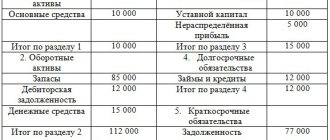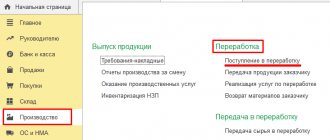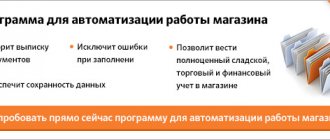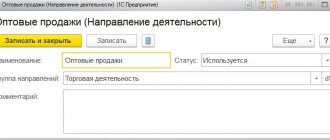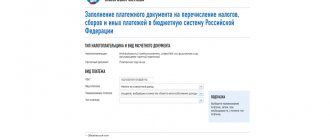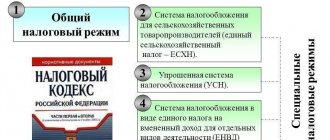Donations can be accepted by organizations whose list is approved in the Civil Code of the Russian Federation in Art. 582. These include medical organizations, educational institutions, enterprises specializing in social services, charity, development of science, culture, religious structures and other types of NPOs (non-profit organizations). NPOs differ from other business entities in that for them making a profit is not the goal or reason for creating an enterprise; their purpose is to implement socially useful tasks.
How to make a charitable donation ?
What rules should an accountant follow to avoid errors when accounting for such receipts?
Keep separate records
According to the above-mentioned Art. 582 of the Civil Code of the Russian Federation, legal entities accepting donations must keep separate records of transactions related to the use of donated funds and property. If primary documents (agreements) indicate the purposes for using donations, these purposes must be followed.
The lack of separate accounting is a gross violation of PBU and current legislation. Errors will definitely be discovered during the audit, questions will arise from regulatory authorities, and budgetary institutions and officials will be forced to pay fines.
Current legislation does not provide clear instructions on the organization of separate accounting. The accounting department of a budgetary institution will have to be guided by PBUs, regulations governing the accounting procedure, and independently decide which registers to use.
Spend donations according to local regulations
Budgetary institutions are under special control. To avoid disputes, care should be taken to confirm the intended use of donated funds and property. It is recommended to establish the procedure for their use in local regulations. It is also worth listing documents confirming the validity of transactions with donated property and funds.
Don't neglect reporting
A budgetary institution must report on the use of targeted donations, first of all, to those who transferred funds or property to it. Reporting for the founder is not mandatory. But tax reporting is just the opposite.
The budgetary institution reports on the intended use of received charitable donations at the end of the tax period. The relevant information is included in the income tax return (RF Tax Code, Art. 250). Donations are not included in income. But for this, certain conditions must be met:
- The funds are classified as a donation, and an agreement has been drawn up with the benefactor.
- The donation is targeted.
- The accounting department of a budgetary institution keeps separate records of expenses and income for earmarked funds.
If at least one condition is not met, the proceeds are included in income when taxing the organization’s profits.
Recognize current revenue correctly
Let's look at this rule using a practical example.
The budgetary organization receives monthly donations (for example, contributions from parents at a school). They are targeted, the purposes of use are specified in contracts with benefactors. The accountant takes into account receipts according to Dt2.205.55 155Kt2.401.40.155. When should a professional allocate donations to a 401.10 account?
According to current legislation, the basis for recognizing income is the achievement of the purpose for which the donation was made. Documentary confirmation of this fact is mandatory. Is there a primary? Prepare an accounting statement to reflect current income.
Important:
The form of the supporting document must be determined by the budgetary organization in its accounting policy.
Navigate the types of financial security
Often what is not considered a donation is counted as a donation. Also quite common are errors in determining financial support and violations of charity legislation. The latter is especially true for institutions that have regular contributions. If the amount of these contributions is fixed and approved by local regulatory legal acts, this, according to the letter of the Ministry of Education and Science No. VK-2227/08 dated 09.09.2015, violates the norms of Federal Law No. 135 of 08.11.1995.
If you have difficulties determining the type of financial support or classifying gratuitous targeted income, contact specialists. Errors in the distribution of income by type of activity of a budgetary institution can be costly. Let us take as an example the financing of a literary prize by a non-resident individual. The funds were transferred free of charge, subject to the condition of intended use in a budgetary institution. The accountant had questions regarding the choice of KOSGU, the classification of the contribution (donation, sponsorship, etc.), and the preparation of primary accounting documents.
Let's turn to the regulatory framework. Order No. 209n indicates the need to apply KOSGU only for legal entities when receiving income (donations, grants) from non-residents.
Regarding primary documents, it is recommended to conclude a standard donation agreement. It will become the basis for recognizing income.
Now for a little more practice
Let's figure out how funds received into the institution's account and which are donations are reflected in accounting. According to regulatory requirements and clarifications of the Ministry of Finance, KFO 2 is used to account for such funds.
It is recommended that the accountant pay special attention to the terms of donations. If gratuitous receipts do not have conditions, they should be recognized as income of the current reporting period. Did the institution receive the donation with strings attached? Recognize them in accounting as deferred income. Accordingly, different accounts will be used in the postings. For donations with conditions, the reflection is relevant as the conditions are implemented. The funds are included in the income of the current period. The operation is confirmed by posting Dt 2 201 34 510 Kt 2 205 ХХ 66Х.
Charity and taxes
What is considered charitable activity? Are all donations classified as charitable and under what conditions is an enterprise helping citizens or organizations entitled to apply tax benefits? Legislation on charity Legislation on charitable activities consists of the relevant provisions of the Constitution of the Russian Federation, the Civil Code of the Russian Federation, the federal law “On charitable activities and charitable organizations” and other federal laws and laws of the constituent entities of the Russian Federation. Participants in charitable activities Participants (parties) in charitable activities are philanthropists (legal entities) or volunteers (citizens) and beneficiaries (citizens and legal entities in whose interests charitable activities are carried out). What is charity In accordance with Art. 1 of the Federal Law of August 11, 1995 No. 135-FZ “On Charitable Activities and Charitable Organizations” (hereinafter referred to as Law No. 135-FZ), charitable activity is understood as such voluntary activity of an enterprise, as a result of which it disinterestedly (i.e., free of charge) transfers to citizens or legal entities with funds, property, services or other support. Agreements related to the formalization of relations for the provision of charitable assistance are, by their legal nature, gratuitous. Signs of charitable activity In order for the financing of organizations to be classified as charitable activity, the following conditions must be met: - the enterprise receiving financial assistance should not be a commercial organization and should not belong to political parties and movements;
— the recipient of assistance should not have any obligations to the benefactor in return for the assistance provided to him; — the recipient organization must use financial resources strictly for their intended purpose, and submit a report on their use to the charitable organization. REMINDER: Philanthropists are not responsible for the misuse of funds transferred by them. Purposes of charitable activities Donations for strictly defined purposes listed in Art. 2 of Law No. 135-FZ: - social support for citizens; — preparing the population to overcome the consequences of natural disasters and catastrophes, to prevent accidents; — assistance to victims of natural disasters, environmental and industrial disasters, social, national, religious conflicts, victims of repression, refugees and internally displaced persons; — strengthening peace, friendship and harmony between peoples, preventing social, national, religious conflicts; - increasing the prestige and role of the family in society; — protection of motherhood and childhood; — promoting education, science, culture, art, enlightenment, spiritual development of the individual; — prevention and health protection of citizens, as well as promotion of a healthy lifestyle; — assistance to institutions of physical culture and mass sports; — nature conservation, animal protection; — maintenance of buildings that have historical and cultural value, as well as burial sites and a number of others. REMINDER: Transfer of property through sponsorship is not a charitable activity. The sponsorship contribution is recognized as payment for advertising, and the sponsor and sponsored, respectively, are the advertiser and the advertising distributor. In this regard, sponsorship and charitable assistance have different goals. Article 423 of the Civil Code of the Russian Federation stipulates that an organization providing charitable assistance should not receive payment or other consideration for the fulfillment of its “good” intentions. Meanwhile, according to the author, those who donate to charitable purposes still receive “hidden” advertising, because charitable activities help to raise the prestige of the enterprise, which, in turn, expands the circle of consumers. Note! Charity can consist not only of donating money, food, clothing and other basic necessities, but also of training and employing people with disabilities or, for example, providing free legal assistance, organizing sports clubs for children, etc. Charitable organizations The concept of a charitable organization is given in Art. 6 of Law No. 135-FZ. A charitable organization is a non-profit organization (NPO) created specifically to conduct charitable activities in the interests of society as a whole or certain categories of persons, but not to make a profit. Such an organization cannot be state or municipal; its founders can only be individuals and (or) legal entities. The status of “charitable organization” is assigned by the registration authorities of the constituent entities of the Russian Federation. A charitable organization can be registered only in the following organizational and legal forms: - public organization; - fund; - institution. REMINDER: A charitable organization is created in the form of an institution if its founder is a charitable organization. In order to make a charitable contribution or donation, the consent of the recipient is not required. In accordance with the Civil Code of the Russian Federation, such transactions are unilateral; their written form is not mandatory. To prove the transfer of funds for charitable purposes, information about the recipient and the benefactor must be indicated in the primary document - in the receipt order, acceptance certificate, etc. Nonprofit organizations must prepare reports on how they manage donations to monitor the implementation of charitable activities. This obligation is provided for in Art. 19 of Law No. 135-FZ. Very important! Not all organizations that provide charitable donations for the purposes specified by Law No. 135-FZ are classified as charitable. To obtain the status of a “charitable organization,” Law 135-FZ establishes special criteria and requires registration. Taxation of charitable donations Income tax
Until 2002, companies could allocate up to 5% of their profits to charity.
These expenses reduced the tax base. Since 2002, with the entry into force of Chapter 25 of the Tax Code of the Russian Federation, benefits for commercial organizations participating in charitable activities have been abolished. Companies can only donate funds from net profits. If a company provides free services or donates its products free of charge, then the expenses that arise do not reduce its payments to the budget. Such clarifications are given in the Letter of the Ministry of Finance of Russia dated March 12, 2006 No. 03-03-04/2/53. Only those companies that donate money to one of three areas can be exempt from income tax: culture, science or healthcare. Moreover, they will be able to receive the benefit only after the relevant ministry adds them to the list of companies that are exempt from tax. Value added
tax The transfer of goods (performance of work, provision of services) free of charge within the framework of charitable activities carried out in accordance with Law No. 35-FZ, with the exception of excisable goods, is not subject to VAT.
Any other transfer is considered gratuitous and is subject to VAT in accordance with Article 146 of the Tax Code of the Russian Federation. REMINDER: Firms may not pay VAT only if, in accordance with Law No. 135-FZ, they donate goods, work or services. Note! All conditions established by this Law must be met in order for a donation to be recognized as charity. This is how clauses are defined. 12 clause 3 art. 149 of the Tax Code of the Russian Federation. In this case, it is necessary to issue an invoice, because for transactions exempt from VAT in accordance with Art. 149 of the Tax Code of the Russian Federation, an invoice is still issued (clause 1, clause 3, article 169 of the Tax Code of the Russian Federation), only the amount of VAT is not allocated, but the inscription “Without tax (VAT)” is made (clause 5, article 168 of the Tax Code RF). At the same time, tax authorities refuse to deduct the value added tax that the company paid to suppliers of goods (works, services). It is also necessary to restore VAT on property transferred as part of charitable activities, if it was previously accepted for deduction from the budget, and pay it to the budget (clause 3 of Article 170 of the Tax Code of the Russian Federation). Tax deduction for personal income tax
A Russian citizen has the right to receive a tax deduction if he donates money to social institutions: - organizations of science, culture, education, health care and social security, which are partially or fully financed from the budget of any level;
— physical education and sports, educational and preschool institutions; - religious organizations. A citizen's expenses for charitable purposes reduce (are subject to deduction) his income tax in accordance with subparagraph. 1 clause 1 art. 219 of the Tax Code of the Russian Federation. However, the amount of the tax deduction cannot exceed 25% of annual income, which is taxed at a rate of 13%. REMINDER: Non-residents of the Russian Federation cannot take advantage of this benefit, because they pay tax on their income at a rate of 30%. To receive a “charitable” (social) deduction, a citizen must write a corresponding application to the tax office at the place of residence and submit a tax return for the tax period in which the donations were transferred (clause 2 of Article 219 of the Tax Code of the Russian Federation). To receive a tax deduction, you must document your expenses. The application must be accompanied by: - a certificate of income in Form No. 2-NDFL; — payment documents that confirm that the money was transferred for charitable purposes; - donation agreement. An agreement is usually drawn up if the recipient of the money must use it strictly for certain purposes (Article 5 of Law No. 135-FZ). A tax return claiming the deduction can be filed up to three years after the tax year in which the money is donated. The document confirming the expenses incurred can be: - a certificate from the organization issued to the taxpayer at his request about transfers made at his request for charitable purposes; — a copy of the payment order with the bank’s mark on execution. If funds are transferred directly by the taxpayer from his bank account, the expenses incurred are confirmed by a bank statement confirming the transfer of funds for the specified purposes. When a taxpayer deposits funds in cash into the cash desk of an organization that receives financial assistance, the supporting document is a receipt for the cash receipt order indicating the purpose of the deposited funds. Note! Inspectors do not consider a postal receipt as a payment document. To prove that the money was credited to the current account of a charitable organization, the citizen will have to provide additional paperwork to the controllers. Taxes of recipients of charitable assistance
Recipients of charitable assistance are also forced to pay income tax on it in accordance with clause 8 of Art.
250 Tax Code of the Russian Federation. However, if they use the donations only for the purposes for which they received them, they can avoid taxation. That's what it says in paragraph. 14 clause 1 art. 251 Tax Code of the Russian Federation. If a charitable foundation transfers a donation to a citizen, the latter will have to pay 13% income tax on the amount. Some types of such income are still exempt from tax. In particular, grants to support science and education, culture and art (clause 6 of article 217 of the Tax Code of the Russian Federation). Citizens have the right not to pay tax if they have received a grant from one of 72 organizations, the list of which is established by the Government of the Russian Federation. The purpose of such a restriction is obvious - to prevent tax abuse through fictitious charitable foundations. But grants from citizens, both Russian and foreign, are not subject to taxation. When making charitable payments to a citizen, there is no tax base under the Unified Social Tax. The single social tax is charged only on the wages of fund employees (clause 1 of article 236 of the Tax Code of the Russian Federation). Taxation of a charitable organization
It is recommended that charitable organizations include a Report on the intended use of funds received (form No. 6) as part of their annual financial statements.
It reflects targeted revenues for the maintenance of the organization and the conduct of statutory (charitable) activities. If funds received within the framework of charitable activities are used by a charitable organization for other than its intended purpose, they are included in non-operating income (clause 14 of Article 250 of the Tax Code of the Russian Federation) and are subject to income tax in the generally established manner at a tax rate of 24%. Charitable organizations are required to keep separate records of income (expenses) received (produced) within the framework of targeted income and business activities. If the organization that has received targeted financing does not have such records, these funds are considered as subject to taxation from the date of their receipt. Charitable activities are not subject to VAT, but it is also impossible to deduct VAT when carrying out charitable activities. At the end of the tax period, upon receipt of charitable funds specified in paragraph 2 of Art. 251 of the Tax Code of the Russian Federation, a charitable organization in accordance with clause 14 of Art. 250 of the Tax Code of the Russian Federation must submit to the tax authority at the place of its registration a “Report on the intended use of property (including funds), work, services received as part of charitable activities, targeted income, targeted financing” as part of the corporate income tax return . Let's summarize: Ideal tax conditions for companies and citizens who engage in charity do not exist in any country in the world. Despite this, up to 95% of European entrepreneurs donate funds to charity. The system of tax incentives for charity in Russia has also not been developed. Some of the donations go to the state, and not to those for whom they were intended. However, the Government of the Russian Federation is currently discussing charity reform. It is assumed that a company or citizen who wishes to donate money will contribute it to the capital of charitable foundations. The latter is to invest in securities and banks. Accordingly, charitable projects will be carried out using interest from this capital. The Russian Ministry of Finance is ready to exempt donations from taxes if the foundation proves that it is engaged only in charity, or spins off its commercial business into a separate company. The latter, in turn, will pay all taxes as a regular organization. According to the Russian Ministry of Finance, such a system will make it possible not to mix charity and entrepreneurship. Charitable companies will not be able to receive any tax breaks. The goal of the financial department is to close any loopholes that businesses can use to evade taxes. discuss the article Elmira Bagautdinova, expert - tax consultant, member of the Chamber of Tax Consultants of Russia
Let's sum it up
If a budgetary institution relies on donations, sponsorship contributions, including regular non-fixed ones, the procedure for accepting payments, using funds, and confirming their receipt must be fixed in the accounting policy.
When receiving money and property from benefactors, it is necessary to keep separate records. If it is not organized, the error should be corrected as soon as possible.
The organization of separate accounting requires accountants to have appropriate competencies. Having problems or questions? Outsource organization and accounting. Specialists will take on the solution of current problems, perform the necessary operations, taking into account the specifics of the institution’s field of activity, its status and the need to use special accounts and forms of reporting documents. Professional separate accounting in a budgetary institution minimizes the risk of errors and associated financial and legal sanctions.
Tags for this publication:
charitybudgetary organizationsfinance
Donating medicines to charity
03/12/2017 # Taxes Pharmaceuticals - industries
To begin with, two important aspects need to be noted:
— the transfer of medicines as a charity can only be carried out to individuals and non-profit organizations, while charitable transfers in favor of individual entrepreneurs and commercial organizations are prohibited (Article 1, paragraph 2 of Article 2 of the Law “On Charitable Activities and Charitable Organizations”);
— charity is characterized by the gratuitous nature of the operation, but if, in exchange for the transfer of medicines, the recipient of assistance undertakes to disseminate information about the pharmacy (for example, by publishing a press release in the media), then such an operation will most likely be qualified as sponsorship, i.e. types of advertising (clause 9 of Article 3 of the Law “On Advertising”), and the transfer of medicines itself will be in the nature of payment for advertising services provided to the pharmacy by the recipient of the medicines.
The purchase price of drugs donated as charity is not taken into account as part of tax expenses when calculating income tax and the single tax on the simplified tax system (clause 1 of article 252, clauses 16 and 34 of article 270, clause 2 of article 346.16 of the Tax Code of the Russian Federation).
The transfer of medicines to charity is also not subject to VAT (clause 12, clause 3, article 149 of the Tax Code of the Russian Federation; Resolution of the Federal Antimonopoly Service of the Moscow District dated January 9, 2008 N KA-A40/13490-07-2 in case N A40-74705/06-126- 466), therefore, if the pharmacy is the payer of this tax, then:
— the amount of VAT previously accepted for deduction on the cost of the drugs in question must be restored for payment to the budget during the period of their donation to charity (clause 2, clause 3, article 170 of the Tax Code of the Russian Federation);
— it is necessary to keep separate records of taxable and non-taxable VAT transactions (clause 4 of article 149 of the Tax Code of the Russian Federation);
— it is possible not to keep separate records, and the amount of VAT previously accepted for deduction may not be restored for payment if the share of total expenses for the purchase of medicines donated as charity in the tax period in which they are donated is no more than 5% of the total amount total expenses of the pharmacy (clause 4 of article 170 of the Tax Code of the Russian Federation). Thus, the court refused the Federal Tax Service's request to restore VAT on the cost of drugs donated to charity, due to the fact that the cost of the donated drugs did not exceed 5% of the pharmacy's VAT-taxable revenue for the given period (Resolution of the Arbitration Court of the Moscow District dated May 20, 2015 N F05-5455/2015 in case No. A40-142380/14);
— such a transfer must be reflected in section 7 of the VAT return for the period of transfer of medicines to charity under code 1010288 (Order of the Federal Tax Service of Russia dated October 29, 2014 N ММВ-7-3/ [email protected] ).
A pharmacy may refuse the preferential procedure for VAT taxation of donating drugs to charity for a period of at least a year by submitting a free-form application to its Federal Tax Service no later than the 1st day of the tax period from which the waiver of the benefit is declared (clause 5 of Article 149 of the Tax Code RF). In this case, the VAT deduction for the drugs in question is not restored, and the transfer of drugs to charity itself is subject to VAT based on the market value of such drugs without VAT (clause 1, clause 1, article 146, clause 2, article 154 of the Tax Code of the Russian Federation). Refusal of this benefit may be beneficial to the pharmacy if it does not entail an increase in tax liabilities (the amount of VAT accrued when transferring medicines is covered by deducting the amount of VAT from the cost of purchased medicines), while the pharmacy will not have the obligation to maintain separate records for VAT and fill out the section 7 VAT returns.
If the recipient of sponsorship is an individual, then the pharmacy does not have obligations as a tax agent for personal income tax in relation to the cost of the transferred drugs, which does not exceed 4,000 rubles. (clause 28 of article 217 of the Tax Code of the Russian Federation). There is no need to charge insurance premiums on the full cost of drugs donated to charity (clause 4 of article 420 of the Tax Code of the Russian Federation; clause 1 of article 20.1 of the Federal Law “On compulsory social insurance against industrial accidents and occupational diseases”).
In conclusion, we note that the list of documents confirming the charitable nature of the donation of medicines may be as follows (Letter of the Ministry of Finance of the Russian Federation dated October 26, 2011 N 03-07-07/66):
- an agreement between the taxpayer and the recipient of charitable assistance for the free transfer of medicines, and instead of an agreement, a letter from the recipient of charitable assistance with a request to the pharmacy to provide such assistance can be used (Resolution of the Federal Antimonopoly Service of the North-Western District of November 17, 2005 in case No. A56-11300/2005);
- invoice, etc. a document confirming the transfer of medicines to the recipient of charitable assistance in the form approved by the pharmacy’s accounting policy for accounting purposes (clauses 1 and 4 of Article 9 of the Law “On Accounting”).
Example
On December 15, 2016, the pharmacy at OSNO submitted to the Federal Tax Service an application for refusal to apply the benefit under paragraphs. 12 clause 3 art. 149 of the Tax Code of the Russian Federation. In the 1st quarter of 2021, the pharmacy purchased and donated medicines worth RUB 110,000 to a state medical institution as a charity. (including VAT 10%).
The transfer of medicines in connection with the refusal to apply the benefit is subject to VAT, the accrued VAT is 10,000 rubles. In this case, the pharmacy applies a VAT deduction from the cost of purchasing these medications in the general manner (clause 2 of Article 171, clause 1 of Article 172 of the Tax Code of the Russian Federation) in the amount of 10,000 rubles. Thus, the amount of VAT payable on the transaction of donating medicines as a charity is zero. At the same time, the pharmacy is freed from the requirements of maintaining separate records and filling out section 7 of the VAT return.
How can we be useful?
Tax modeling is one of the services that Kamerton-AK has been successfully providing for 25 years.
If you are interested in your money working for your business and not leaving it, then we know how to help you! To all publications
How to apply benefits for charity (UP-5986)
During the quarantine period, business entities donate funds and goods (services) to the charitable foundations “Mahalla”, “Kindness and Support”, “Uzbekistan Mehr-Shavkat va Salomatlik”, as well as individuals included in the list of those in need of social support. From April 1 to December 31, 2021, funds and goods (services) transferred for these purposes are considered as deductible expenses when calculating income tax; goods (services) are exempt from VAT and are not included in the object of taxation for turnover tax.
Leading expert of “Norma” Natalya MEMETOVA told us what to pay attention to when applying these benefits
– According to the press service of the State Tax Committee, information about those who provide charitable assistance and the persons who receive it is compiled on the website of the Civil Service Development Agency under the President of the Republic of Uzbekistan –. The information posted on this website is the basis for the application of tax benefits established.
How to document
To justify the use of benefits, you need to have a list of people to whom you provide assistance.
We recommend that you issue an order for the allocation of funds for charity, attaching this list. Specify in the order:
- the amount of funds allocated for these purposes;
- in what form the assistance will be provided.
The individuals you provide assistance to must be on the preferential list of local authorities.
Assistance provided to individuals included in the list formed by local authorities as part of the implementation of measures dated April 27, 2020, is not their income.
Attention: If you independently provide assistance to organizations or individuals due to the pandemic, benefits do not apply to the amount of such assistance.
When providing financial assistance, indicate in the payment order the number and date of the document - the basis (Decree, order or other document).
When transferring goods (services) free of charge, issue an invoice indicating their cost. It is determined based on the acquisition cost or cost.
VAT on the invoice:
- do not indicate if you are transferring goods (services) within the scope of the benefit, since this is turnover exempt from VAT;
- indicate if the gratuitous transfer is not related to a benefit.
When transferring valuables to individuals, fill out a distribution sheet indicating their full name, passport details and Taxpayer Identification Number (if possible). It will also be the documentary basis for applying the benefit. Based on the results of the transfer of materials, issue a write-off act.
How to report in tax reporting
Let's look at the reflection of charitable expenses in reporting using an example. Let's assume within an enterprise:
- provided financial assistance to the Mahalla Charitable Foundation in the amount of 7,000 thousand soums;
- donated food products to needy individuals included in the list approved by the khokimiyat. The cost of purchasing products including VAT is 3,450 thousand soums.
Additionally, the company transferred:
- food products for other individuals not included in the list. The cost of their acquisition is 2,300 thousand soums. VAT included;
- medical supplies to the hospital. The acquisition cost is 5,000 thousand soums. without VAT.
VAT
Financial assistance is not subject to taxation and is not reflected in the VAT calculation.
When transferring goods (services), if you have correctly drawn up invoices, applying the exemption - without VAT, they will be correctly reflected in the Register of invoices for goods (services) sold - Appendix No. 5 to the Calculation. Accordingly, the further formation of information in the Calculation will be correct.
To reflect the benefit in the report, fill out line 030 “Turnover on sales of goods (services) not subject to taxation in accordance with other regulations - total” of Appendix No. 2 to the Calculation. To do this, in line 030... select benefit with code 7820.
Lines 030, 010 of Appendix No. 2 and line 01021 “Net sales revenue exempt from VAT” of Appendix No. 1 are filled in automatically.
Include the cost of the gratuitous transfer in line 0102 of Appendix No. 1 “Net proceeds from the sale of goods.”
Turnover on the gratuitous transfer of goods (services) not related to the benefit is subject to VAT. Reflect it:
- in line 0102 of Appendix No. 1 - for goods, own products, services;
- in line 01081... “Other taxable turnover” of Appendix No. 1 – based on materials.
Attention
VAT on purchased goods (services) transferred for charitable purposes is not taken into account:
- in the case of application of benefits - due to the fact that they were acquired for the purpose of turnover exempt from VAT;
- in other cases - due to use for needs for which expenses are non-deductible.
If you use the separate method of accounting for creditable VAT, reflect the tax on purchased assets in line 0302 of Appendix No. 3 to the Calculation.
With the proportional method, the amount of VAT not subject to offset is determined automatically as the ratio of the amount of non-taxable turnover to the total amount of turnover for the sale of goods (services), determined on an accrual basis during the current year (line 0202 of Appendix No. 3 to the Calculation).
According to the example given, VAT must be charged for the gratuitous transfer of valuables not related to the benefit:
(2,300 + 5,000) x 15% = 1,095 thousand soums.
VAT when purchasing food products is not taken into account, but is included in their cost:
(2,300 + 3,450): 115 x 15 = 750 thousand soums.
Income tax
Expenses for charity within the framework of the benefit are 10,450 thousand soums. (7,000 + 3,450) are deductible. Other expenses are 8,395 thousand soums. including VAT ((2,300 + 5,000) x 115%) - non-deductible.
Preferential amount of 10,450 thousand soums. reflect in line 070... of Appendix No. 3 to the Calculation of Income Tax, selecting the appropriate benefit from the list. It will automatically be reflected in line 030 of Appendix No. 3.
All charitable expenses (financial and material part) 18,845 thousand soums. (10,450 + 8,395) can be reflected in line 0121 “Expenses for charitable assistance” of Appendix No. 2 to the Calculation.
Another variant:
- the material part, taking into account accrued VAT, is 11,845 thousand soums. (3,450 + 8,395) reflected in line 0129 “Cost of gratuitously transferred property (services) and expenses associated with such transfer (including the amount of VAT)”;
- financial assistance 7,000 thousand soums. - in line 0121.
Please note that the amounts are automatically reflected in column 4 “Non-deductible expenses”.
In addition, show all charitable expenses in columns 3, 4, lines 070–120 “Other expenses.” Line 060 will be filled in automatically.
In line 020 of the Calculation, deductible expenses are automatically generated taking into account the data in Appendix No. 2. And since in Appendix No. 2 all charitable expenses were reflected as non-deductible, they will not appear in line 020.
But we reflected the preferential part in Appendix No. 3, which is automatically taken into account in line 040 of the Calculation.
The tax base in line 060 of the calculation is determined taking into account the benefits.
Thus, first, charitable expenses are reflected as non-deductible, and then the preferential part is deducted when determining the tax base.
Sales tax
Financial assistance is not subject to value added tax.
What should be reflected in line 011 of the Calculation “Losses from the gratuitous transfer of goods and services”?
It is important that this line is filled in by type of activity. From this we can conclude that the transferred food products need to be reflected only if you are a trading enterprise and for you this is a product, or you are a manufacturing enterprise and for you this is a finished product.
In other cases, the enterprise will account for them as other property, the disposal of which is not related to the activities of the enterprise.
Attention
According to the Tax Code, a commodity is any object of nature or human activity that has a value assessment and is intended for sale . Sales also include the transfer of ownership of goods or the provision of services free of charge.
Based on the definitions of Tax Code and the logic of Calculation, we conclude:
- if food products are purchased by a trading enterprise for further sale, but are sent to charity, their cost is 5,750 thousand soums. (2,300 + 3,450) must be reflected in line 011 of the Calculation;
- if food products were purchased for charity and are not related to trading activities, they are not reflected in line 011.
Medical products are also not reflected in line 011, since they were transferred to a healthcare institution.
If line 011 reflects food products, in order to reduce the tax base for the cost of products transferred under the benefit - 3,450 thousand soums, reflect it in line 030... of Appendix No. 2 to the Calculation, selecting the desired benefit from the list.
Lines 030 and 010 of Appendix No. 2 will be automatically filled in, as well as line 050 of the calculation “Decrease in total taxable income.” In this case, you need to indicate the amount of the benefit - the amount of reduction in the tax base in relation to the type of activity of the trading enterprise.
Personal income tax
The cost of property and services received free of charge is income in the form of material benefits for individuals. VAT accrued upon the transfer of property is taken into account in its value.
Income in the form of financial benefits is not subject to social tax, since it does not relate to income in the form of wages.
Income of individuals in the form of financial benefits is reflected in the surname breakdown in Appendix No. 6 to the Calculation and in line 012 or line 0121 of the Calculation.
Should benefits be reflected in the personal income tax calculation?
This can be done if you have information about the TIN of the individuals who received assistance . In this case, include them in the transcript of Appendix No. 6 in accordance with the distribution sheet. In columns 6 and 7 “Personal income tax”, enter “0”.
In line 050... of Appendix No. 2 to the Calculation, select the benefit under the Decree from the list and show the cost of food 3,450 thousand soums. and the number of persons who received them. In lines 050 and 010 of Appendix No. 2, in line 030 of the Calculation, the total amount of benefits will automatically be reflected, reducing the tax base for personal income tax.
If you do not have information about the Taxpayer Identification Number (TIN) of individuals who received food products as part of the benefit, you may not reflect them in your personal income tax reporting, since according to gratuitous assistance, it is not considered as income for individuals.
But the cost of food products, including VAT (if applicable), transferred to individuals not included in the khokimiyat’s list must be reflected in Appendix No. 6 to the Calculation - indicating the TIN. This is income subject to personal income tax.
Personal income tax on the cost of food products will be:
- for enterprises that pay VAT (2,300 x 1.15) x 12% = 317.4 thousand soums;
- for enterprises that pay turnover tax 2,300 x 12% = 276 thousand soums.
When paying income in kind, the calculated tax amount is paid within 5 days after the end of the month in which the payment in kind was made.
The enterprise is responsible for withholding and transferring taxes to the budget. Since this is a charitable event, personal income tax will be paid by the enterprise.
Taxes paid for others are non-deductible expenses when calculating income taxes.
Accounting
| Operation | Debit | Credit |
| Financial assistance transferred | ||
| Materials donated free of charge | (VAT)* (NDFL)* | |
| Products donated free of charge | (VAT)* (NDFL)* | |
| Donated free of charge goods | (VAT)* (NDFL)* | |
| Services provided free of charge | (VAT)* (NDFL)* |
*Transactions for crediting account 6410 are the accrual of VAT and personal income tax in the case of providing charitable assistance that is not related to benefits under.
Conclusion:
The measures provided for by the Decree are aimed at providing assistance to those most in need of support. The benefits provided and the procedure for their application confirm this. Charitable assistance under these measures eases the tax burden of those who provide it. At the same time, we must not forget that budget revenues are decreasing.
Charity beyond the benefits provided is your expression of will. Therefore, here it is necessary to act in the manner established by the general norms of tax legislation.
Experts' explanations reflect their opinions and create an information basis for you to make independent decisions.
